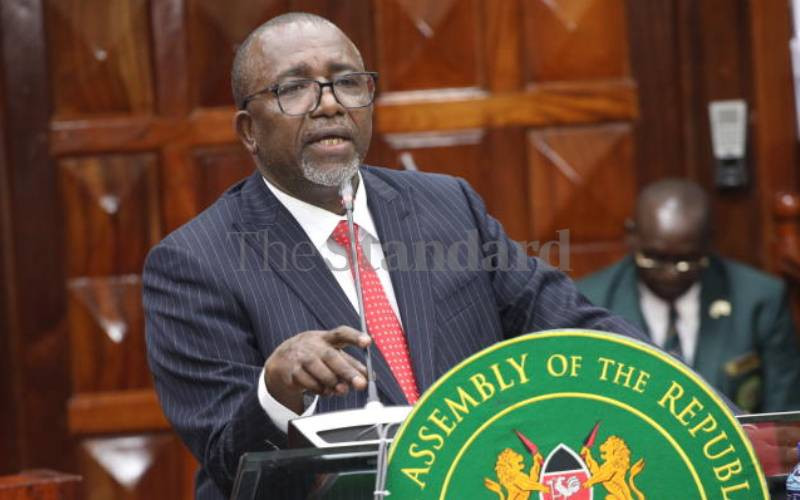 |
|
Sunny Bindra (centre) presents the runners up award to Irene Mwathi (right) and Evelyn Mugendi both from Procter & Gamble. [Photo: Courtesy] |
By Winsley Masese
Nairobi, Kenya: Technology provider Craft Silicon has been rated the best company to work for in Kenya.
The ranking, further demonstrates Kenya’s growing stature as information, communication and technology hub in the region.
According to the survey Deloitte Best Company to Work For Survey 2013, Proctor and Gamble, was rated second with Kenya Finance Women Trust coming third.
Craft Silicon, is a financial solution provider in banking and micro-finance software, mobile and switch solutions.
Grand prize
Founded and headed by Kamal Budhabatti, the company won an Sh85.4 million ($100,000) grand prize at the 2010 Africa Awards for Entrepreneurship.
The survey analysed input of employees from 17 companies to ascertain which company they consider to be the best employer to work for.
Themed, ‘War for talent’, the survey provided a glimpse into the ability of companies to attract and retain talent. Out of the various categories, commercial banks had four entries. Family Bank was rated as the best employer in the industry.
The bank has undergone numerous strategic changes since the appointment of Peter Munyiri as the institutions chief executive in 2011.
Speaking during the announcement of the winners in Nairobi Thursday, Deloitte South Africa consulting partner Jack Sellschop said this year’s survey theme focuses on talent in a rapidly changing business environment.
“Increasing numbers of companies are expanding into the continent. These companies are becoming aware of the need to understand the perceptions of their employees towards their institutions and what they value in the employer or employee relationship,” he said.
Key parametres
The survey looks at several parametres such as remuneration and work life balance, confidence in the organisation, operational effectiveness and job satisfaction.
In addition, the survey also looks at the employee’s sense of confidence in the organisation, organisational ethics and integrity among other parameters.
Stay informed. Subscribe to our newsletter
The report measures the rating by employees in terms of operational effectiveness and employee relationship with immediate supervisors and sense of inclusion in the organisation. Others include overall job satisfaction and career development prospects among others.
The report also reveals interesting trends that are at the heart of winning and retaining talent.
The pace of organisational growth is at the top of winning talent. Other key aspects are talent development, transformative human resources and proper workplace branding.
Deloitte East Africa consulting partner Kimani Njoroge said the findings from the survey would assist employers develop strategies to improve the working environment for employees.
“This gives employers the opportunity to develop insights into what motivates people, what attracts them to their firms, what they value and also collect the hard data required to make these judgments,” he said.
Deloitte Chief Executive for East and Central Africa Sammy Onyango noted that the war for talent in Africa goes beyond the traditional borders of the individual States, adding that it has become regional, Pan African and will eventually be global.
“It is mandatory for businesses to regularly engage employees to create a strategy to address their motivation, behaviour, productivity and business results,” he said.
Engagement initiatives
Onyango urged employers to constantly consult employees on determining and applying engagement initiatives that are relevant to the unique needs of the organisation’s diverse workforce rather than on-size fits all approaches.
“Work environments now have multi-cultural, multi-generational and cross-geographical aspects,” he said. He advised companies to identify the right employees and engage them in the right organisational behaviours.
This, he said is a critical ingredient of how they manage the diverse economic conditions facing their organisations today.
The survey will extend to Uganda and Tanzania from next year.
 The Standard Group Plc is a
multi-media organization with investments in media platforms spanning newspaper
print operations, television, radio broadcasting, digital and online services. The
Standard Group is recognized as a leading multi-media house in Kenya with a key
influence in matters of national and international interest.
The Standard Group Plc is a
multi-media organization with investments in media platforms spanning newspaper
print operations, television, radio broadcasting, digital and online services. The
Standard Group is recognized as a leading multi-media house in Kenya with a key
influence in matters of national and international interest.
 The Standard Group Plc is a
multi-media organization with investments in media platforms spanning newspaper
print operations, television, radio broadcasting, digital and online services. The
Standard Group is recognized as a leading multi-media house in Kenya with a key
influence in matters of national and international interest.
The Standard Group Plc is a
multi-media organization with investments in media platforms spanning newspaper
print operations, television, radio broadcasting, digital and online services. The
Standard Group is recognized as a leading multi-media house in Kenya with a key
influence in matters of national and international interest.






